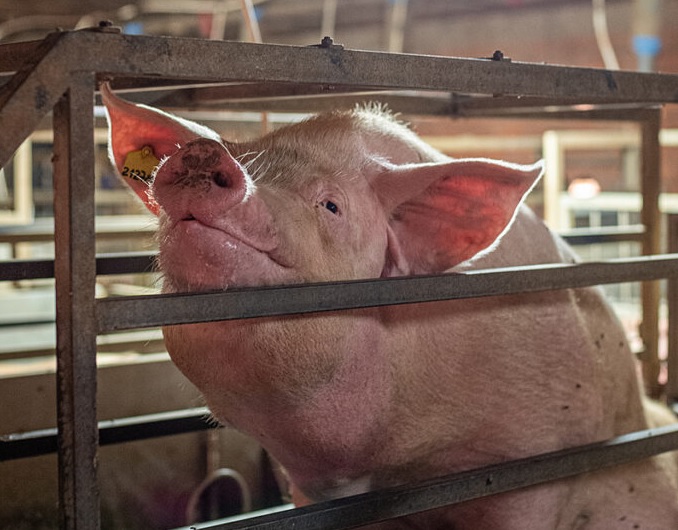The latest special Eurobarometer on animal welfare came out last week, and the long wait was worth our while. Not that I doubted for a minute that it would be good.
The findings confirm, once again and, hopefully, once and for all, that European citizens hold animal welfare very close to their hearts. I’ll only report here three striking results:
- 91% of Europeans consider that farming and breeding practices should meet basic ethical requirements
- 89% say that animals should not be kept in individual cages
- 88% say that it is important to improve the welfare of animals in slaughterhouses
Another interesting aspect that emerges from this new edition of the survey is that the vast majority (96-97%) of Europeans who are regularly in contact with companion animals believe it’s also important for farmed animals to have better welfare, such as enough food and an environment that suits their needs.
This defies the notion of selective compassion and rather suggests a compassion spillover effect: the proximity of domestic animals expands the circle of compassion. Among all the good they bring into our lives, companion animals also open our hearts and minds to the animal condition at large.
What also struck but not surprised me was the fact that only a very small proportion of citizens is in close contact with farmed animals. The vast majority of livestock farming now occurs behind closed doors and visiting livestock industrial production facilities is, in most cases, not something for a school outing.
Yet, it is also evident that the constant flow of information, the undercover investigations aired on television and disseminated on social media, and the targeted campaigns led by animal advocacy organisations are effective in raising awareness among the general public. Hence the vast majority of citizens wanting to improve the lives of farm animals.
Europeans want measures to improve farmed animals welfare
While geographical differences are still present, the results of this Eurobarometer are unequivocal in showing that there is extremely high support across the EU for better protection for farmed animals (ranging from 76% of respondents in Romania to 98% in Sweden). This clearly goes to show that Europeans want measures to improve farmed animals welfare and that positive changes in legislation will be viewed favourably across Europe.
Looking at the demographic distribution, it is also clear that young people and people who believe in the European Union are more attuned to animal welfare. And it is exactly for the needs of these categories that current policy makers should cater.
Unfortunately, what we are witnessing at the moment is a relinquishment of responsibility, a shrug of the shoulders on the part of the European Commission, who backtracked on - or is now painfully vague about - many of its most progressive legislative proposals on animal welfare, consumer information and food system transformation due to incessant and aggressive industry lobbying on all fronts.
Now, perhaps more than ever before, we are faced with a dichotomy between what Europeans want and care for and what policy makers are willing to do.
In my opinion, The European Union might end up paying a very high price for its lack of attention to the rightful demands of its citizens. We have already witnessed a decreasing interest in European politics, demonstrated by the low turnover for EU elections in the past 20 years, falling below 50%.
The disengagement of Europeans from their EU governance can only grow bigger if the European institutions continue to ignore the demands of millions. After all, why should a citizen trust European policy makers, when the successful European Citizens’ Initiatives (ECIs) on animal welfare and the promises of a greener, more sustainable future are put aside to defend the prevailing economic interests, buttressed by populist narratives?
Instruments such as the Eurobarometer and the ECIs should build bridges between politics and civil society. Nothing could be further from reality at the moment and I am not alone in thinking this is reason for concern. In view of the elections next year, may the Eurobarometer on animal welfare be a wake-up call for those in power.
If the opinions of European citizens continue to be dismissed, and if the commitments made towards them continue to be trampled upon, we might well witness more disengagement of civil society from EU institutions and an exacerbation of the disillusionment with the European project.


